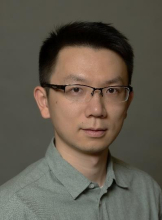MSE Special Seminar: Architecting 3D Complex Materials for Sustainability

Abstract: The rapid technological advancement exposes demanding requirements on materials with multiple functions and supreme performance for serving under harsh and extreme environments. Nowadays, carbon neutralization represents an urgent need to adopt sustainable strategies to manufacture metals and also energy-related materials for green transition and clean energy generation. By leveraging advanced manufacturing technologies, modern metallurgy enables the fabrication of materials with designed structures, e.g., multiple phases, modulated microstructures and hierarchical porosities, for extraordinary properties and enhanced performances. In this talk, I will first demonstrate tailoring microstructures of dual-phase titanium alloys and high-entropy-superalloys lattices fabricated by additive manufacturing via modulating local alloying compositions for enhanced mechanical performances. Secondly, I will present the freeze casting of Fe-based metallic foams with hierarchical porosities, as energy storage materials in rechargeable oxide batteries, to achieve stable structures during high-temperature redox cycling. Finally, I will share my vision and plan for future research in sustainable manufacturing and in situ characterization of metals and thermoelectric materials with complex structures for applications in extreme environments.
Bio: Ming Chen is a postdoctoral researcher advised by David Dunand in the Department of Materials Science and Engineering at Northwestern University. He received B. Eng, M.Sc. and Ph.D. in metallurgical engineering and materials science from the University of Science and Technology Beijing (2012), RWTH-Aachen University (2015) and Swiss Federal Institute of Technology, ETH Zurich (2020) respectively. His doctoral research focuses on studying the mechanical properties of crystalline materials under extreme temperatures at small length scales. After graduating, he first joined the Paul Scherrer Institute in Switzerland as a postdoctoral researcher to work on laser 3D printing of dual-phase titanium alloys and in situ characterizing the laser printing process by using the synchrotron high-speed X-ray diffraction. After joining Northwestern University, he is working on manufacturing structural and energy-related materials (thermoelectrics) for operations at high temperatures or redox reaction environments. His research interests concentrate on the manufacturing of structural and energy-related materials with complex structures to operate under harsh and extreme conditions for clean energy generation and green transition.
Share
Related Content
| Attachment | Size |
|---|---|
| 1.59 MB |
Upcoming Events
-
MSE Special Seminar: Revolutionizing Battery Technology - Engineering Quantum Materials for Enhanced Safety and Performance in Solid Electrolytes
-
MSE Special Seminar: Designing Sustainable Soft Matter from the Molecule Up
-
EECS Seminar: On-device Contextual AI – Challenges and Opportunities
-
MAE 298 SEMINAR: Control and Estimation of Turbulent Shear Flows using Modal Analysis
-
MSE Special Seminar: Organic Semiconductor-incorporated Perovskites (OSIP) – A New Family of Hybrid
